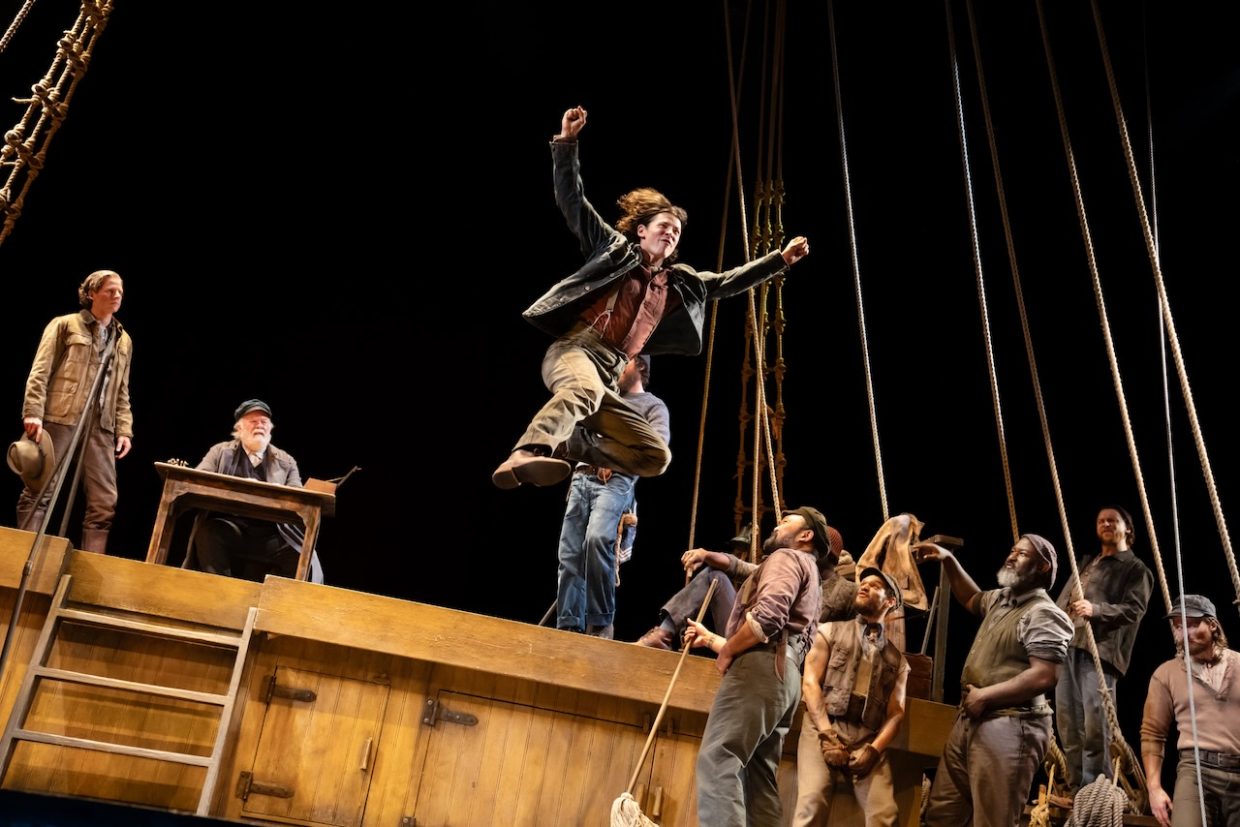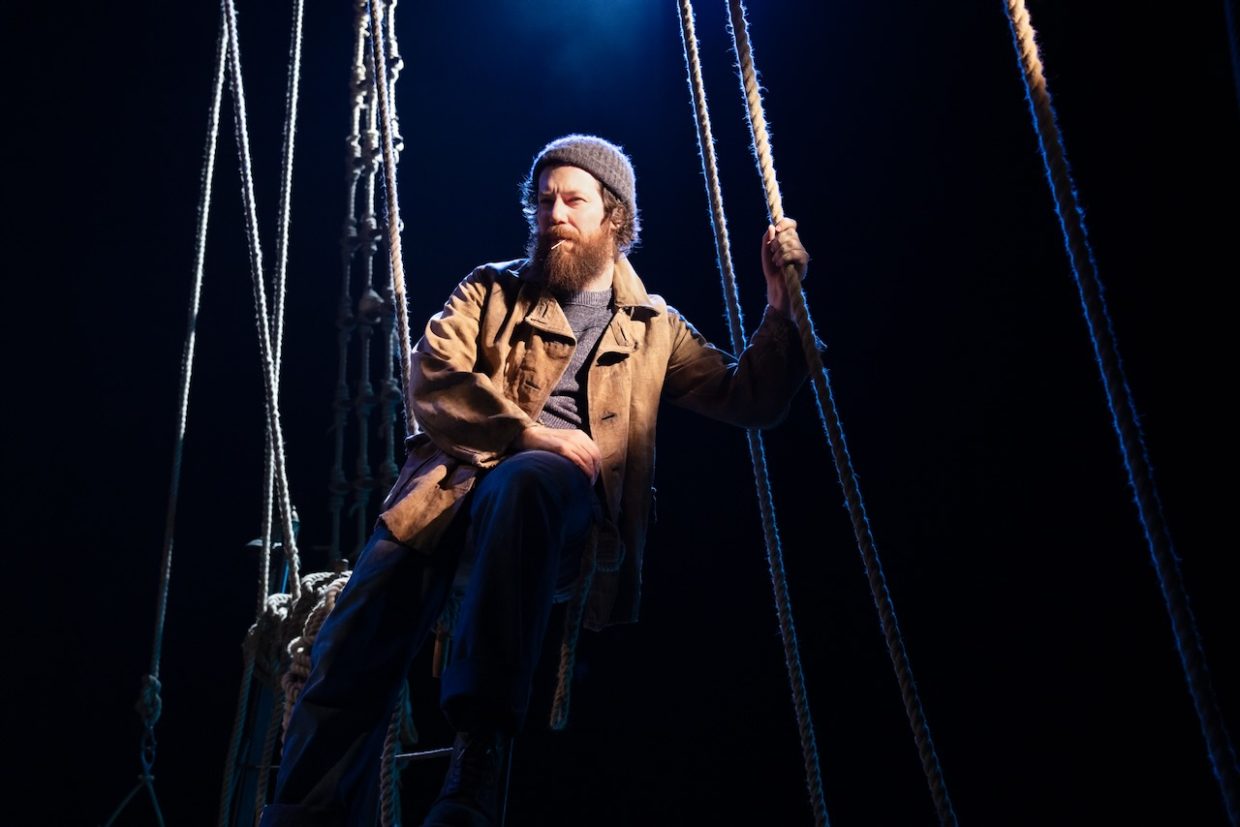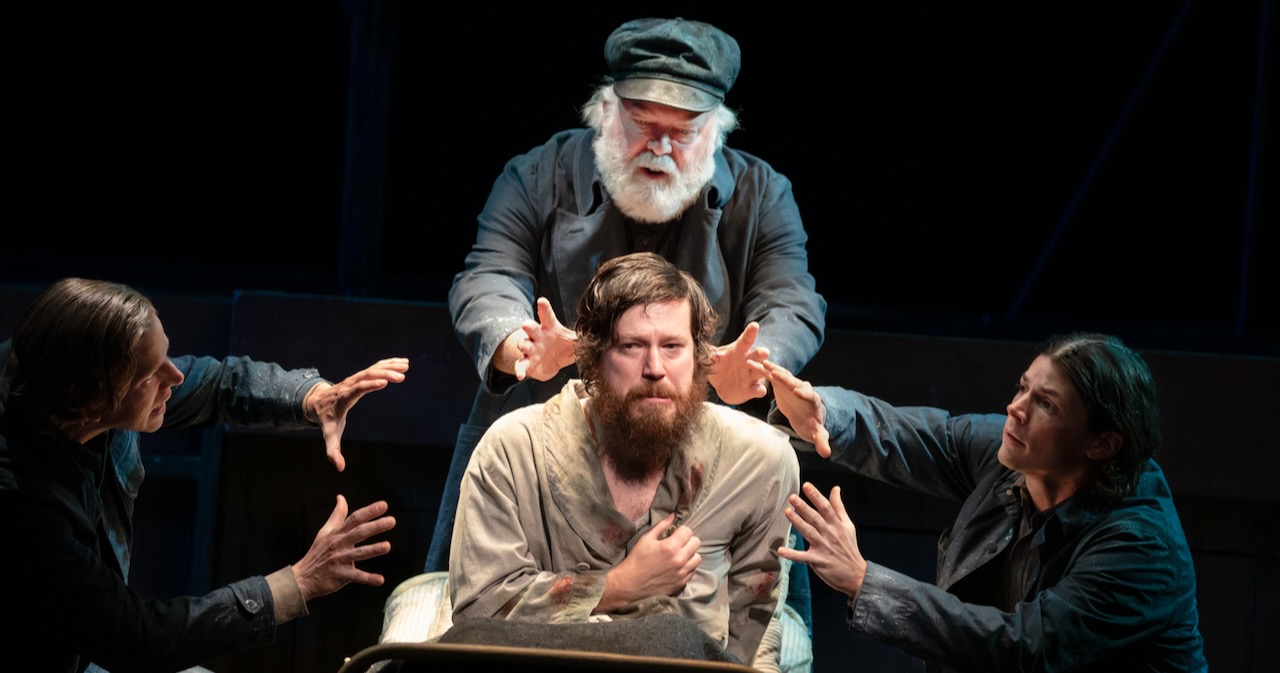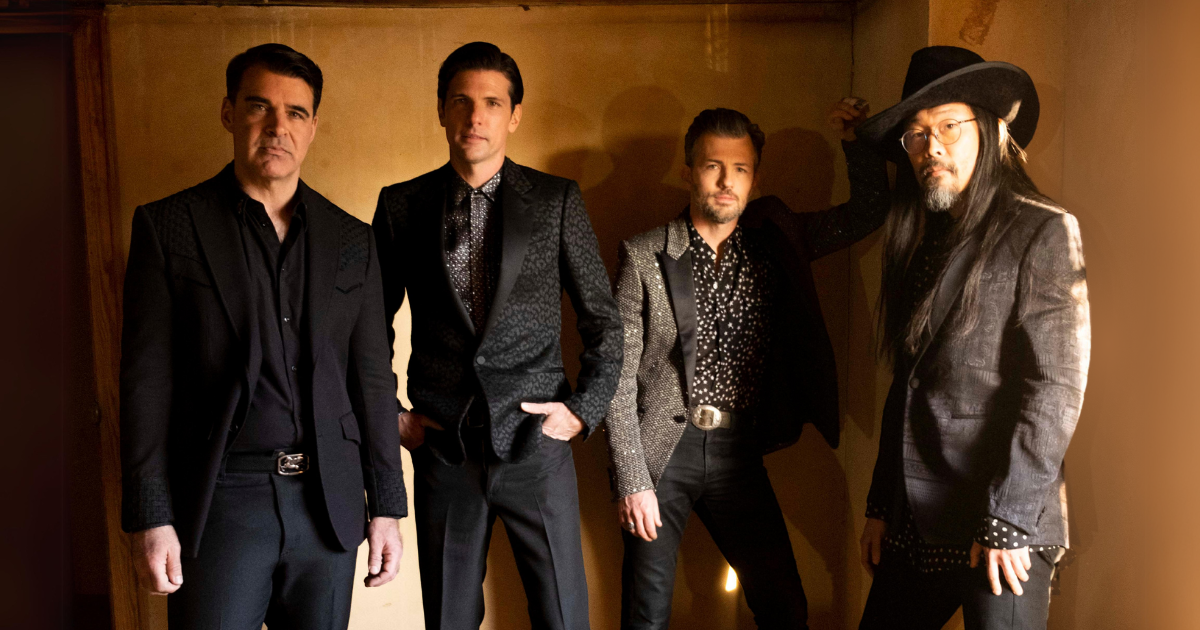It has been two decades since the Avett Brothers released their shipwreck-themed concept album Mignonette. This fall, the musical Swept Away, based on the album’s story, will premiere on Broadway as the latest in a bevy of roots-based musicals lighting up those storied theaters.
Swept Away is presented in 90 minutes without intermission. During previews in San Francisco and Washington, D.C., the cast and creative team received high praise from theater critics and Avett Brothers fans alike.
The Avetts’ original song cycle was based on the story of a shipwreck near the Cape of Good Hope that left four survivors in a lifeboat. To survive, three of them killed the fourth and ate him for sustenance. When they were finally rescued, the three stood trial, breaking a tradition of maritime law that up to that point had carried the spirit of, “What happens at sea remains at sea.”
It’s quite a story for a band of brothers who have become known for their stirring sincerity. But, Scott Avett told Broadway.com, “We were driving around to places that seemed unknown, in a van. We seemed to have nothing but this belief that we were doing something that was true. … It was easy to see that van as our vessel.”
“It was scary,” adds Seth. “We felt very driven to survive.”

The Avetts discovered the story via their father, Jim Avett, who had a special affection for stories of shipwrecks and handed them a book about its history, The Custom of the Sea: A Shocking True Tale of Shipwreck, Murder, and the Last Taboo. When they wrote Mignonette, the brothers Seth and Scott were 23 and 27, respectively, and just beginning to rise from the clubs. But the disc pointed the way toward a bright future for the Avetts, which then included only the brothers with bassist Bob Crawford.
It was that trio which caught the eyes, ears, and imagination of a young John Gallagher, Jr. Gallagher spent a summer day in 2005 at the Philadelphia Folk Festival, aimlessly checking out bands he’d never heard of before.
Folk audiences were a handful of years out from the release of O Brother, Where Art Thou? – the film that ignited a wildfire of interest in bluegrass and old-time music for a new generation. Plenty of bands in their 20s were throwing their flat caps into the ring. But, Gallagher recalled recently over Zoom, “The thing that struck me … about the Avetts is that they were feeling it, you know. You can’t fake that. You can’t deny that. When you see someone bring that to the stage or put that on a record, it’s totally undeniable.”
That night, while driving back to Delaware with his sister and friends in their mom’s minivan, Gallagher commandeered the discman attached to the cassette adapter that fit into the car’s tape deck to insist everyone listen to the CD he bought after the Avett Brothers’ set.
Mignonette was the only one they had on offer that summer. They’d released it a year earlier on Ramseur Records. Gallagher played its first two tracks – “Swept Away” and “Nothing Short of Thankful” – before moving on to Green Day’s American Idiot, which had also just released.
Fast forward a handful of years and Gallagher was developing a new musical for Broadway based on the very same Green Day album. In his dressing room at the St. James Theater, he’d hung a small poster that showed Seth Avett handing his guitar off to a tech at a live show.
Mignonette had long since turned the young actor into a self-described “fanboy.” Even as he sang eight shows a week of Green Day tunes, he couldn’t have possibly known he’d eventually be cast for another Broadway show, this time based on the Avett Brothers album he’d played in that minivan back in Philly.

When it dropped in 2004, Mignonette was lauded by the roots music press of the day. Paste extolled the band’s “James Brown precision (in a bluegrass context of course).” No Depression, then still in its original print run, applauded tracks from the album that harnessed “palpable yearning and hope.”
The playwright and filmmaker John Logan (Moulin Rouge) recalls how, in 2017, he received an email from producer Matthew Masten, asking if he’d ever heard Mignonette. After listening to the album for a day, Logan was sold.
He flew to North Carolina, where he pitched his vision for the musical to the Avett Brothers, asking them to open their entire catalog and to write a new song only for the stage. Once they agreed, Swept Away was set in motion. Michael Mayer, who was directing Gallagher in American Idiot at the time – a very different show with a score written by a very different band – was tapped to direct.
The show these men and their team would create would be titled after the album’s opening song, “Swept Away.” It would be somewhat of a jukebox musical, but not really. Somewhere between Jagged Little Pill (which told a new story with Alanis Morisette’s breakthrough album) and Hadestown (whose Tony-winning set designer Rachael Hauck joined Swept Away’s creative team). Plus maybe a little Come From Away. On a ship. In the 1880s.
In recent years, Broadway producers have been more and more interested in revivals (Merrily We Roll Along, Cabaret) and movies-turned-musicals (The Notebook, Moulin Rouge). True originality is more rare on the Broadway stage. Swept Away may be adapted from a 20-year-old folk album, but its songs pull from across the Avetts’ catalog and its book is entirely new.
Like Gallagher, Adrian Blake Enscoe, who is originating the Little Brother character, is a musician away from Broadway. His band, Bandits on the Run, has the scrappy busking energy of early Avetts and he especially appreciates the way the show incorporates the “rough and spontaneous” elements of the Avetts’ music into a score that can resonate with the theater crowd.
“It’s really hard to capture the magic of the little things [about folk music] and translate it to other people,” he acknowledges. Then adds that the music supervisors and arrangers, Chris Miller and Brian Usifer, “did an incredible job of recreating the magic.”
Swept Away is set to open on Broadway October 29, 2024, at the Longacre Theatre on 48th Street.
All production photos courtesy of DKC/O&M. Shot at the Washington, D.C. Arena Stage production of Swept Away by Julieta Cervantes.
Lead Image: Stark Sands, John Gallagher, Jr., Wayne Duvall, and Adrian Blake Enscoe in the Washington, D.C. Arena Stage production of ‘Swept Away.’ Photo by Julieta Cervantes.




